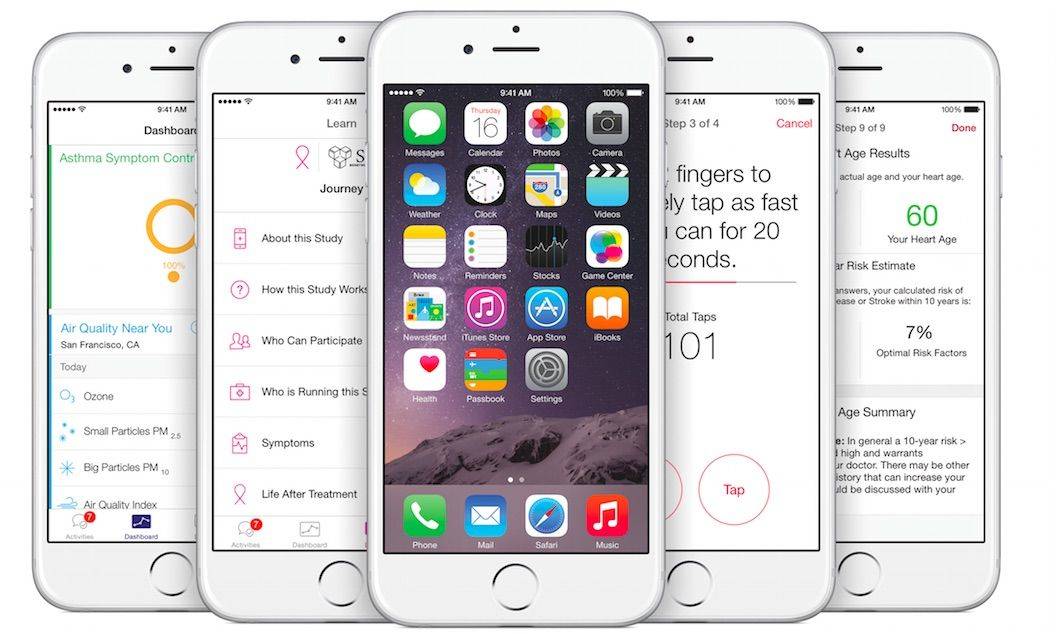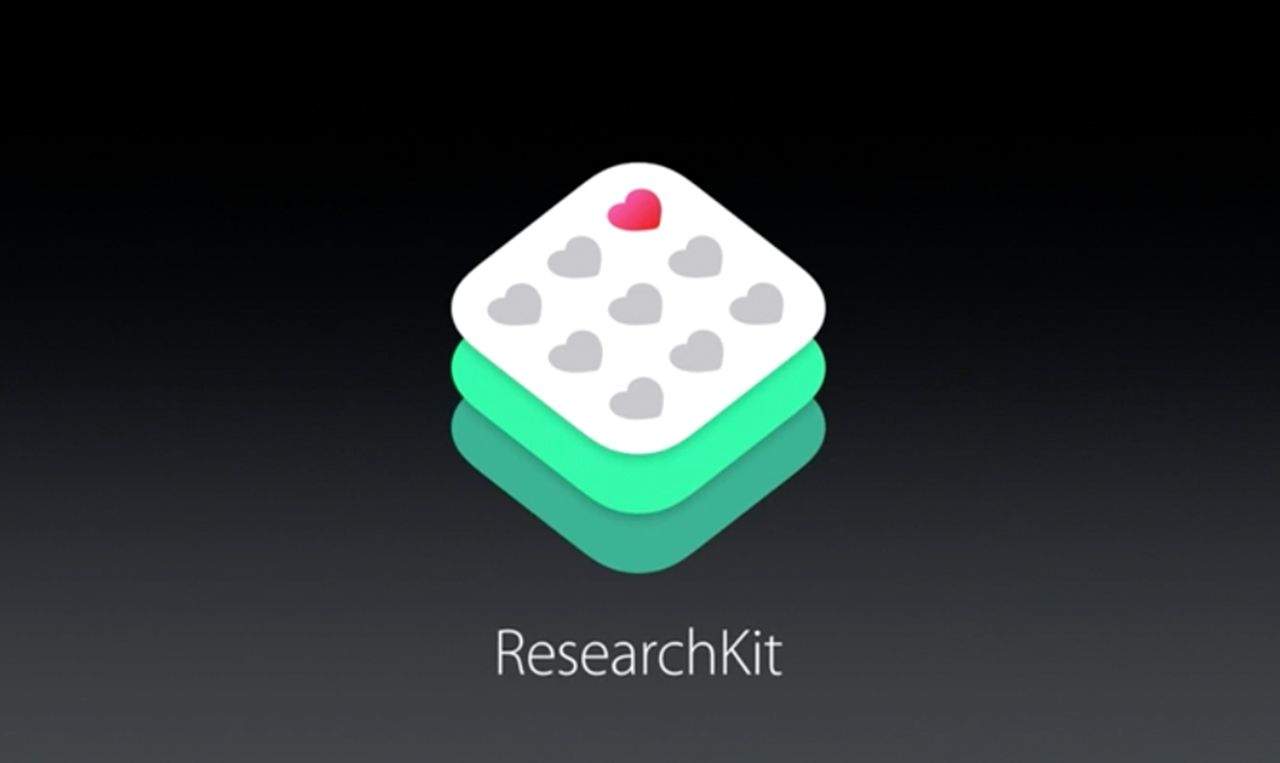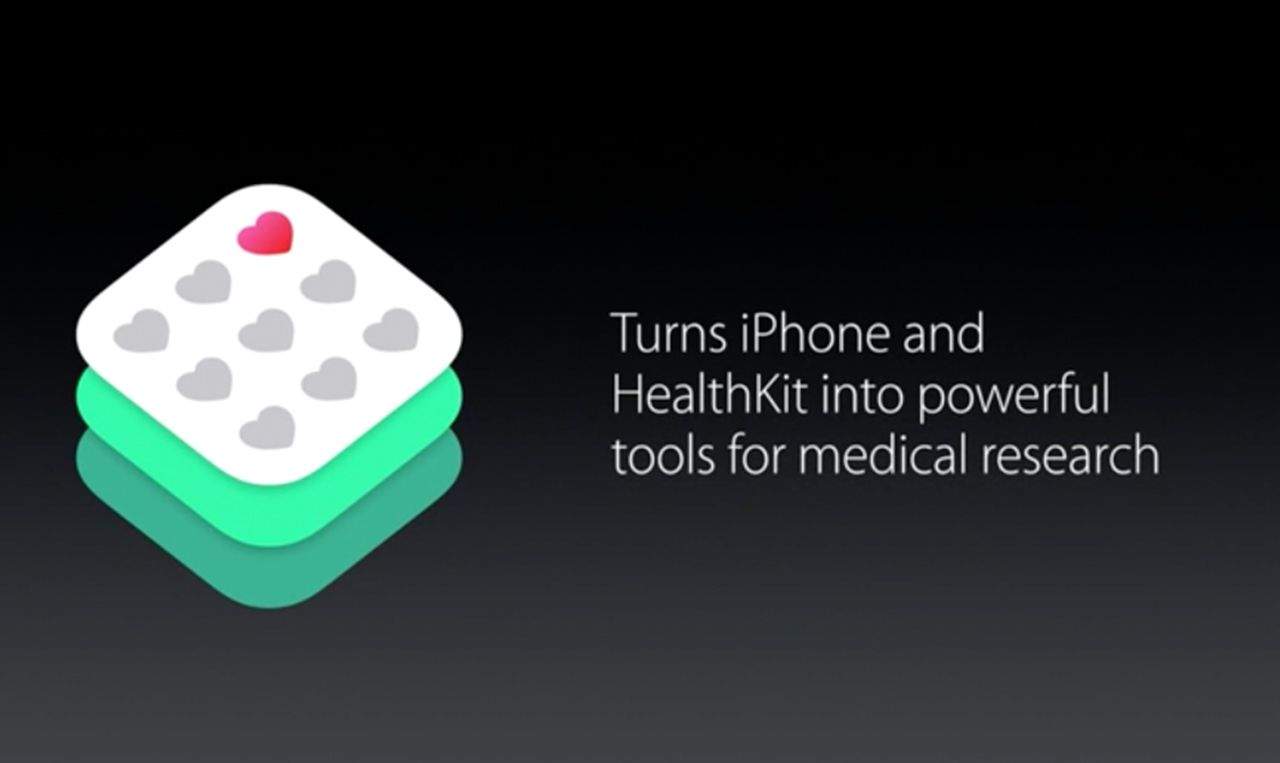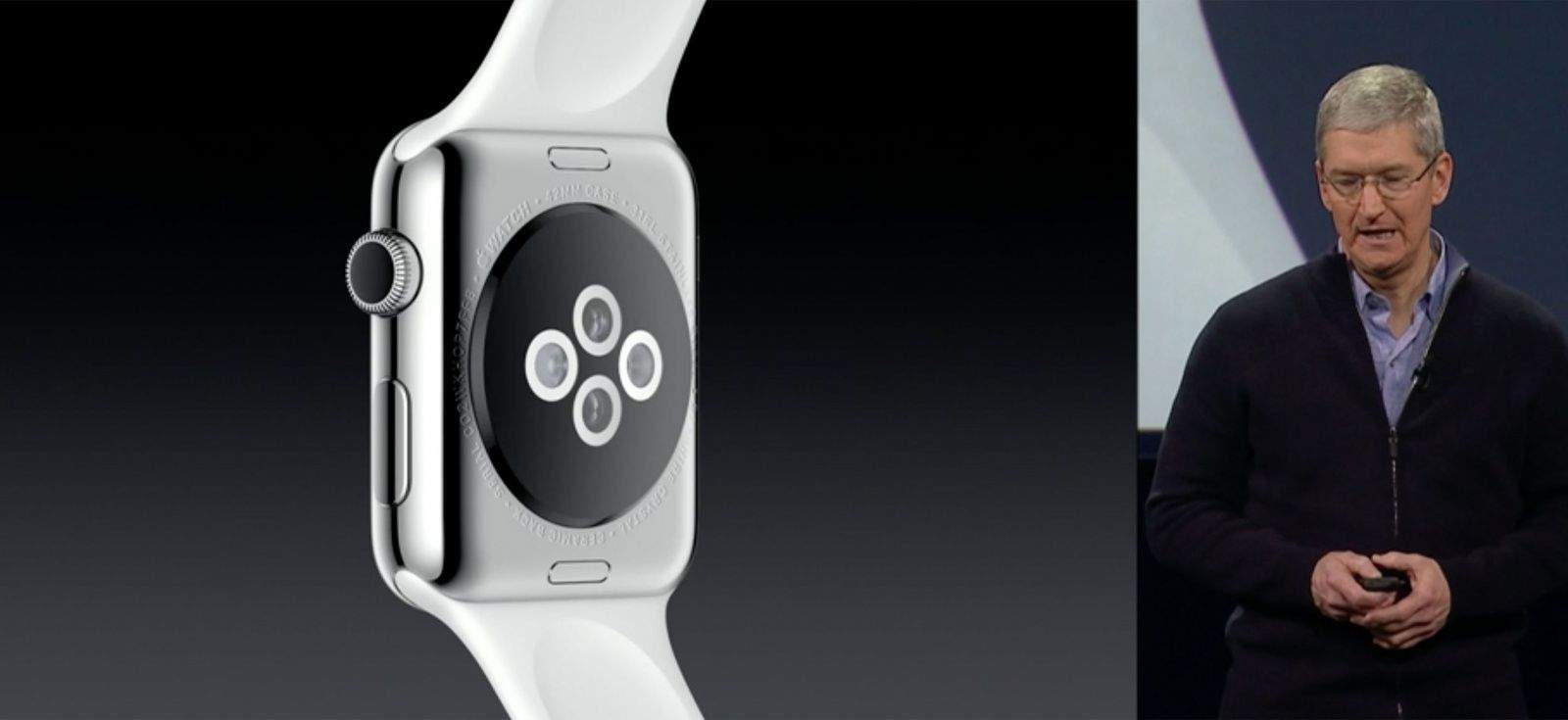Apple’s unveiling of ResearchKit was one of the biggest surprises at event in March. The software framework is designed to help doctors and scientists with medical and health research, and starting today, Apple is opening up ResearchKit to everyone.
The first five ResearchKit apps that study asthma, breast cancer, cardiovascular diseases, diabetes, and Parkinson’s disease already enrolled over 60,000 iPhone users in the first few weeks. Now medical researchers all over the world will be able to tap into the same software that researchers at Stanford and Oxford University used to develop their medical apps.



